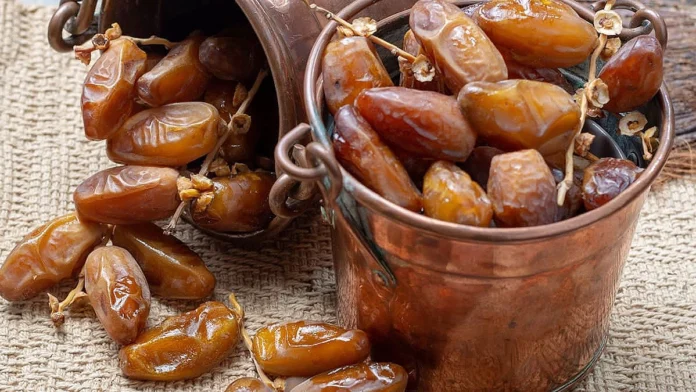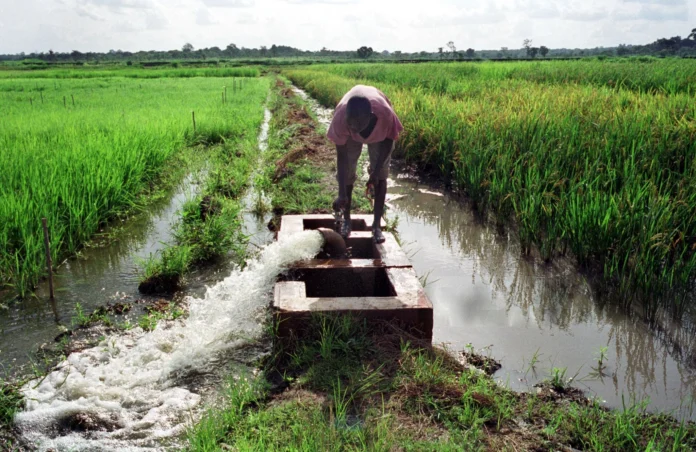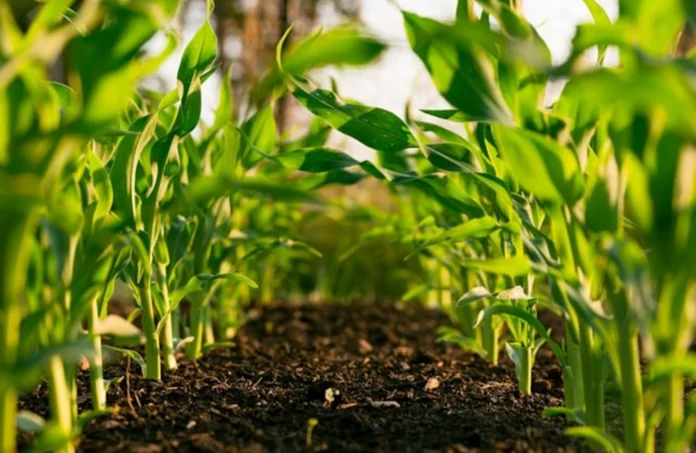Arabfields, Algiers, Algeria — Algeria is on the cusp of realizing significant gains from its substantial investments in the agricultural sector starting next year, with initiatives designed to foster a more resilient, sustainable, and market-driven farming landscape that minimizes vulnerability to climate fluctuations.
This optimistic outlook was shared by Yacine El-Mahdi Oualid, the Minister of Agriculture, Rural Development, and Fisheries, during a plenary session at the National People’s Assembly on Thursday, where lawmakers posed oral questions on various national issues.
In response to inquiries about achieving agricultural self-sufficiency, a cornerstone of the nation’s food security strategy, the minister outlined a comprehensive plan spearheaded by his department to revitalize and modernize agriculture. “Our ministry has implemented a series of practical and organizational measures to boost production, curtail the costs associated with food imports, and unlock new avenues for exports,” he emphasized, highlighting the sector’s pivotal role in ensuring long-term stability for the country’s food supply.
At the heart of this multifaceted strategy are efforts to safeguard natural resources while incorporating renewable energy sources and cutting-edge technologies. Administrative hurdles are being streamlined to encourage investment, and new legal and regulatory frameworks are being established to provide greater security for agricultural stakeholders, both domestic and international.
A key focus, as detailed by the minister, is the expansion of strategic crop cultivation in the southern regions of the country, targeting essential commodities such as cereals, dry legumes, oilseeds, dairy products, and meat. To date, more than 444,000 hectares of land have been allocated for these purposes, with 209,000 hectares designated specifically for national and foreign enterprises operating under Algerian jurisdiction. This allocation underscores the government’s commitment to leveraging the vast potential of the Sahara and semi-arid zones, where innovative irrigation and soil management techniques can transform arid lands into productive farmlands.
Supporting these expansive programs are several officially registered commitment licenses, which serve as formal budgetary authorizations enabling the ministry to initiate project implementation ahead of full funding disbursement. These licenses are particularly concentrated in the southern wilayas, or provinces, with projects spanning 14 such administrative divisions. An allocated budget of 7.3 billion dinars is currently fueling these initiatives, which are already in various stages of execution. This financial backing not only accelerates development but also signals the government’s proactive stance in addressing regional disparities, ensuring that southern agricultural hubs contribute meaningfully to national output.
One of the most transformative elements of the strategy involves enhancing infrastructure to connect agricultural operations to the national electricity grid, a move that promises to boost efficiency and productivity across remote farming areas. Back in 2020, a nationwide survey identified 79,343 farms lacking electrical access, a barrier that hindered mechanization and modern farming practices. Remarkable progress has since been achieved: 48,710 of these farms have now been integrated into the grid, supported by the construction of 29,238 kilometers of electrical networks. This monumental effort has required an investment exceeding 112 billion dinars, demonstrating the scale of commitment to bridging the rural-urban divide in energy access.
Building on this momentum, an additional allocation of 23.6 billion dinars has been earmarked for further modernization efforts in 10 wilayas, focusing on upgrading existing systems and extending coverage to even more isolated operations. Such investments are expected to reduce operational costs for farmers, enable the use of advanced equipment like automated irrigation systems, and ultimately contribute to higher yields in a sector often challenged by energy shortages.
Financial incentives form another critical pillar of the ministry’s approach, with enhanced support mechanisms designed to empower farmers and stimulate growth. These include expanded subsidies, low-interest loans, and innovative financing options tailored to specific needs. For instance, a new interest-free “cooling” credit program has been introduced to facilitate the construction of cold storage facilities ranging from 300 to 500 cubic meters in capacity, with repayment terms extending up to ten years. This initiative addresses a longstanding bottleneck in post-harvest management, where inadequate storage often leads to spoilage and economic losses, particularly for perishable goods like fruits, vegetables, and dairy.
The escalation in budgetary support underscores the government’s prioritization of agriculture: funding for farmer assistance has surged from 58.5 billion dinars in 2023 to 166 billion in 2024, before adjusting to 82 billion in 2025. This trajectory reflects a strategic pivot toward sustainable investment, balancing immediate needs with long-term fiscal responsibility, while ensuring that resources reach smallholders and large-scale producers alike.
To optimize harvest handling and mitigate transportation expenses, which have historically eroded profit margins for rural farmers, the ministry has rolled out an ambitious program to bolster storage infrastructure nationwide. This includes the development of 30 large-scale silos, each capable of holding 100,000 tons of grains, alongside 350 localized collection centers designed to store up to 5,000 tons apiece. Of these centers, 232 have already been completed and are operational, strategically positioned to minimize the distance between production sites and processing facilities managed by the Algerian Cereals Office (OAIC). By decentralizing storage, this network not only preserves crop quality but also streamlines logistics, reducing the environmental footprint of transport and enhancing overall supply chain efficiency.
Complementing these infrastructural advancements are targeted measures to ensure the steady supply of vital inputs like seeds and fertilizers, coupled with the adoption of modern production methodologies. Since July, 78 dedicated one-stop shops have been established across the country to expedite the distribution of these essentials, increasing availability and simplifying access for farmers. This initiative has been instrumental in addressing seasonal shortages that previously disrupted planting cycles, allowing for more predictable and productive agricultural seasons.
In a bid to elevate the red meat industry, a national commission comprising industry professionals, veterinarians, and relevant institutional representatives has been convened. This body has formulated a comprehensive national plan aimed at overhauling production processes, bolstering animal health protocols, and organizing the livestock market more effectively. By tackling issues such as disease outbreaks, feed quality, and market volatility, the plan seeks to position Algeria as a more competitive player in regional meat trade, potentially reducing reliance on imports and fostering export opportunities.
Finally, the minister highlighted the sector’s embrace of digital transformation as a game-changer for operational oversight and decision-making. A suite of online platforms has been deployed to monitor challenges in real time, assess requirements for inputs and machinery, and quantify output across various agricultural subsectors. These tools harness data analytics to provide actionable insights, enabling policymakers and farmers to respond swiftly to emerging issues, from pest infestations to market demands. This digital integration not only enhances transparency but also paves the way for precision agriculture, where technology-driven approaches can optimize resource use and yield forecasts.
As Algeria advances these reforms, the anticipated benefits, from enhanced food sovereignty to economic diversification, position the nation to navigate global uncertainties with greater resilience. With investments bearing fruit as early as next year, the agricultural sector stands as a beacon of progress in the country’s broader development agenda.












